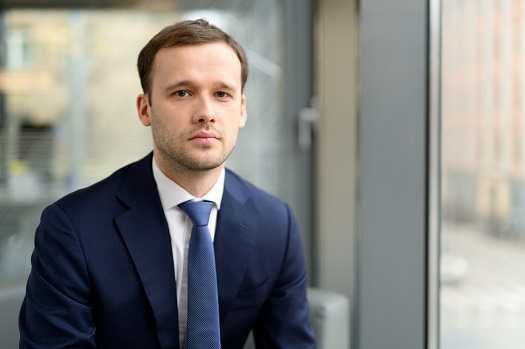Nordea economists: The Baltic States – too good to last for long
All three Baltic economies are undergoing a period of robust growth supported by strong internal and external tailwinds. Externally, we saw the robust economic growth of the Western economies and the post-crisis recovery of Russia. Internally, robust wage growth and strong consumer confidence continued to support domestic consumption despite rising inflationary pressures, while a fresh inflow of EU funds boosted public investment. Yet, Baltics should not become complacent, since labor shortage and weak productivity growth may hamper economic growth going forward, unless a boost to productivity-enhancing investments and needed structural reforms are carried out.

Another longer-term risk stems from overly accommodative monetary and fiscal policies, which risk increasing domestic inflationary pressures and inflating yet another real estate bubble. Even though we expect ECB to start signaling monetary policy tightening already this year, the ECB will withdraw its monetary stimulus only very gradually. The asset purchasing program will likely end next year, followed by very moderate policy rate hikes in the end of 2019. We expect the main refinancing rate still be as low as 0.25% in end-2019, thus continuing to encourage speculative activity in the real-estate market.
Fiscal policy will also remain highly accommodative despite above-potential economic growth. The Baltic governments increase social spending and raise minimum wage aimed at reducing income inequality and alleviating crisis legacies. However, excessive government spending further increases domestic inflationary and wage pressures. With inflation and wage growth already the highest in the eurozone, rotating vicious price-wage growth spiral may eventually result in lost international competitiveness with negative long-term consequences on economic development.
Considering the above-mentioned challenges, we remain cautious about the longer-term growth prospects of the Baltic economies and expect growth to fall towards 2-3% longer-term rate following a temporary cyclical pick-up in 2017 and 2018.
Lithuania: Faster and more balanced growth ahead
“Lithuanian economic growth is becoming faster and more balanced following a two-year period of sluggish consumption-driven growth. Exports are growing thanks to rising demand in the West and a boost in ICT and other business service exports as Lithuania becomes an increasingly popular destination for business service outsourcing. Domestic consumption growth also keeps its momentum despite increasing inflationary pressures. As a result, we expect Lithuanian economic growth to accelerate to 3.8% in 2017, but nevertheless remain cautious about the longer-term growth prospects especially given numerous structural challenges and lack of political will to implement needed reforms”, says Žygimantas Mauricas, Nordea chief-economist in the Baltics.
Latvia: Even turkeys fly in a strong wind
“Latvia's growth this year brings positive surprises. Thanks to a favorable external environment, GDP will grow by at least 4% this year, and similar growth rates will continue in 2018. The main drivers of growth will be exports, incoming European Union funds, as well as government expenditures, which will increase before the elections next year. However, in order to maintain good growth rates in the long run, major reforms are needed in the near future. It is critical to improve the volume of investments and to ensure greater labor market participation, especially for young people,” says Gints Belevics, Nordea economist in Latvia.

Estonia: Spinnaker up. Consumers to loosen purse strings
„A strong broad-based recovery has set in with the outlook for exports and investment lifted by foreign demand and a kickstart to infrastructure spending. Upside risks to growth stem from robust rebound in investments. With the brighter economic prospects, one should not lose a grip on export development and human capital investment to support long-term growth,“ says Tõnu Palm, Nordea chief-economist in Estonia.
GDP growth forecasts, %

Inflation forecasts, %

The entire Baltic Economic Outlook report can be accessed via the following link![]() .
.
More information:
Edgars Zilde, Communications Project Manager at Nordea bank, tel.: 6 700 5434, cell.: 28 452 975, [email protected]
